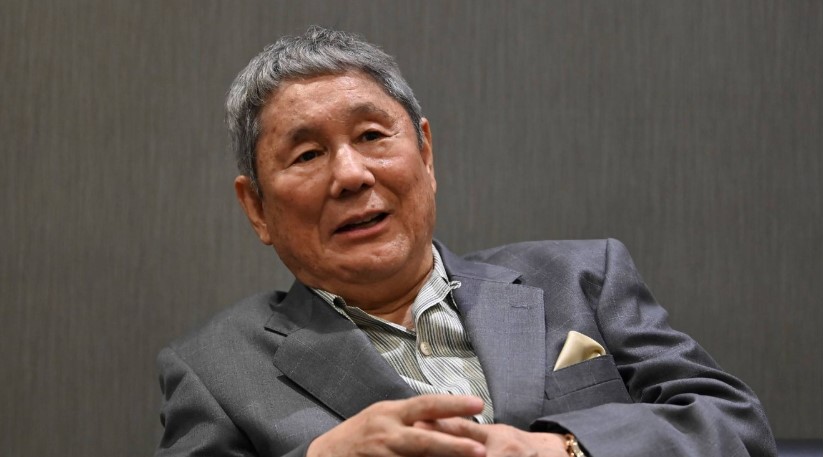Takeshi Kitano‘s phone number, contact information, fan mail address, and other contact information and details are all provided on this page.
Takeshi Kitano, who is now known for his work as a comedian, director, and actor, had the ambition to become an engineer when he was younger. However, he quickly abandoned that goal and started his career as a well-known comedy team Two Beats member, performing under the stage name Beat Takeshi. After that, he concentrated on his acting and directing careers, garnering admirers and accolades with films like “Hana-bi,” which was nominated for a Golden Lion. He is most recognized for the yakuza gangster flicks he has starred in, but he has also hosted several television programmes, such as “Takeshi’s Castle.”
He eventually branched out into writing and authored several publications, including a couple of novels, a memoir, and a collection of short stories. In addition to that, he has contributed pieces to many publications. After being involved in a fatal motorbike accident that left him paralyzed mainly for many days, he began painting and has since shown his work at several different shows. Additionally, he has previously taught classes at the Tokyo University of the Arts. The man, who is now a divorced father of two children, had previously been married to Mikiko Kitano.
Takeshi Kitano was born on the 18th of January, 1947, into a family that belonged to the working class in the neighborhood of Adachi in Tokyo, Japan. When his father worked as a house painter, his mother was a teacher who worked in a factory. She raised him while he was still an infant. He was the youngest of his three siblings, who included two brothers and a sister. After enrolling at Meiji University to pursue a career in engineering, he made the decision in 1972, when he was 19 years old, to pursue a career in show business instead.
Soon after, he relocated to Asakusa to further his comedic skills. He supplemented his income by working as an elevator operator at a strip club in Asakusa France-za while residing there. Takeshi Kitano started his career as a comedian in the 1970s as a member of the comic team Two Beats, together with his excellent friend Kaneko Kiyoshi. During this time, they performed around Japan. Soon after, he began going by the stage name Beat Takeshi, and his companion eventually became known as Beat Kiyoshi; both of them would go on to play in nightclubs under the same moniker.
The pair made their debut on television for the first time in 1976. They quickly became a nationally touring act not long after that. In the early 1980s, while the partnership was at the height of its success, Kitano decided to pursue a solo career. Kitano gained further notoriety for his role as the real game program Takeshi’s Castle presenter, which was known for its comedic-oriented competitions. Takeshi Kitano started his career as a single actor in the latter half of the 1970s. He made appearances in a variety of movies as well as the television series Super Superman. In 1983, he had an appearance in his debut film in the English language, Merry Christmas, Mr Lawrence, which was directed by Nagisa Oshima and starred David Bowie, Ryuichi Sakamoto, and Tom Conti.
With the role of a World War II prisoner of war camp sergeant, he transitioned from comic films to more serious fare in the film industry. Violent Cop, which he directed for the first time in 1989, was followed by Boiling Point, which was released in 1990. In addition to that, it was his first picture as a scriptwriter. Takeshi’s film, “A Scene at the Sea,” which he released in 1991, was recognised as the year’s best film by the Blue Ribbon Award. Soon after, he started working closely with the composer Joe Hisaishi on a long-term basis.
His film Sonatine, released in 1993 and was a big hit, told the story of a cynical yakuza thug. In spite of its poor reception in Japan, the film was hailed as a triumph by critics at the Cannes Film Festival in the same year. In August of the following year, he was involved in a motorbike accident that seriously injured him. The injuries caused Kitano to suffer from a degree of paralysis on the right side of his face. After many months of physical treatment, he fully recovered, but the accident left him with a permanent frown scar on his face.
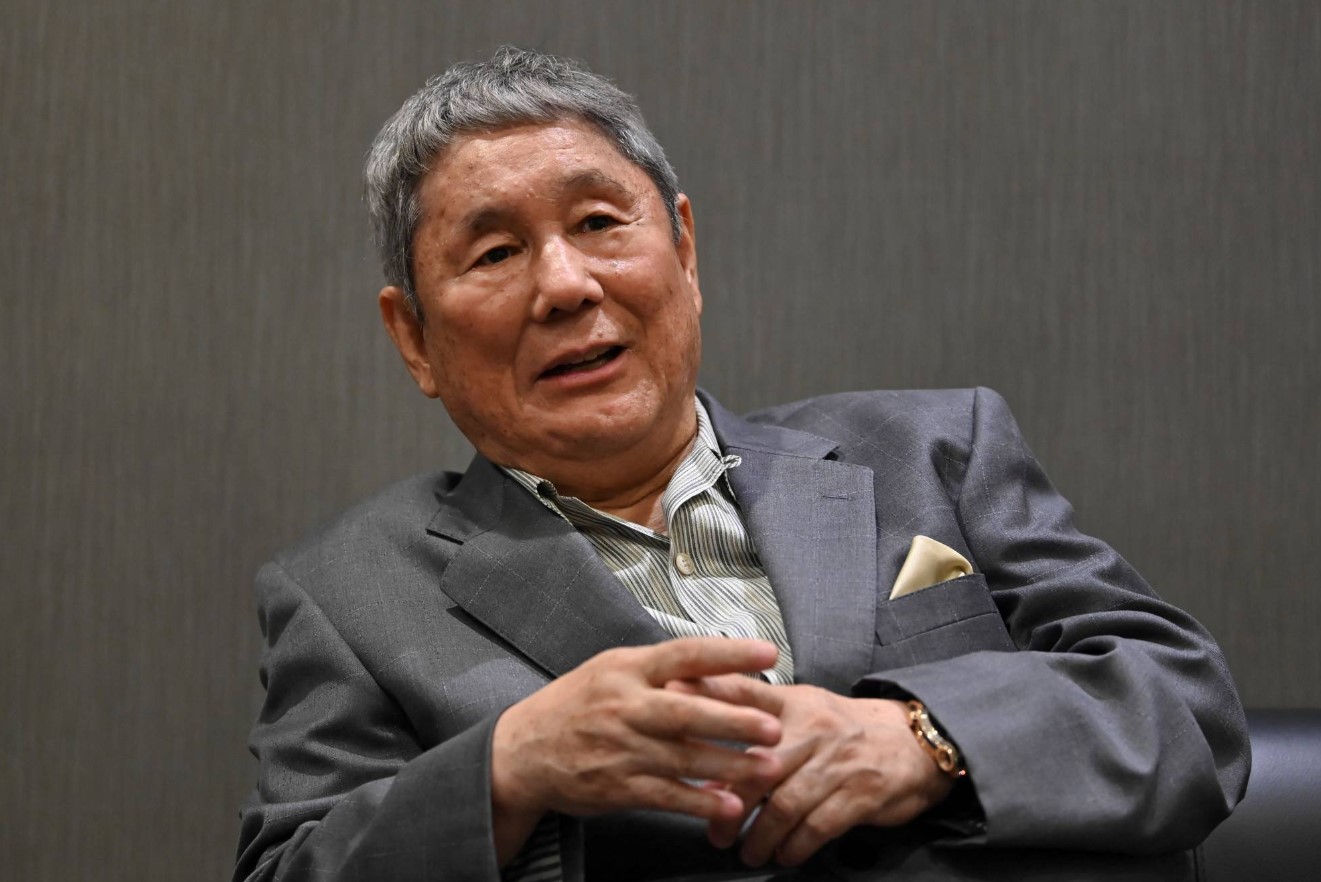
Let’s have a look at Takeshi Kitano’s profile, which includes his contact, phone number, email, Autograph request address, and email Id, as well as his mailing address, fan mail address, and residence number.
Takeshi Kitano Fanmail Address :
Takeshi Kitano
Directors’ Guild of Japan
Shibuya Goto Building 5F
3-2 Maruyama
Shibuya-ku
Tokyo-to 150-0044
Japan
If you are one of his many admirers and who want to write a letter to Takeshi Kitano, we recommend that you utilize his fan mail address provided here. According to the AR, the fan mail address is Takeshi Kitano Directors’ Guild of Japan Shibuya Goto Building 5F 3-2 Maruyama Shibuya-ku Tokyo-to 150-0044 Japan.
The worth of an autograph is determined by a number of things, including desire, popularity, and what was autographed. What is the uniqueness of the signature? What is the status of the signature, how easily accessible it is, and how unusual is it? What network is it linked to? and much more.
In 1995, he appeared in the movie adaptation of William Gibson’s short tale Johnny Mnemonic, titled Johnny Mnemonic. In 1997, he staged a triumphant return to the scene with Hana-bi. Another story between law enforcement officers and yakuza, this one included comedic as well as sad components. That same year, it was awarded the Golden Lion at the Venice Picture Festival, and the next year, the European Film Academy chose it to be the finest film that was not made in Europe that year. At the 1997 Venice Film Festival, Hana-bi was awarded the Golden Lion for Best Film. Kitano also had a role in the film Taboo, which was released in 1999, and she was the presenter of the television program Koko ga Hen da yo Nihonjin from 1998 to 2002.
Kitano appeared in the blockbuster Japanese movie Battle Royale in the year 2000. In the same year, Kitano acted in the film Brother as a yakuza forced into exile. Even though the film was not successful elsewhere, it was able to bring in more money in Japan than Hana-bi did. After that, he appeared in a series of movies that were not very popular, but in 2003, he directed and acted in Zatoichi, which was also his comeback picture. The film was an enormous commercial success in Japan and was honored with many accolades, including the Silver Lion at the Venice Film Festival.
Takeshi, the first volume in his surrealist autobiographical series, was published the same year (2005). The subsequent film, Glory to the Filmmaker, was released in 2007. Outrage, his first film, was shown at the Cannes Film Festival in 2010, and Outrage Beyond, the sequel to Outrage, was shown at the 69th Venice International Film Festival in 2012. At the 7th Asian Film Awards, Outrage Beyond was recognized as having the year’s Best Director. Kitano returned to American film with the live-action adaptation of the manga Ghost in the Shell. Rupert Sanders directed the film. The series Outrage Coda was published under his name in the year 2017.
Takeshi Kitano has written many novels, a collection of short tales named Shounen, and a memoir titled Asakusa Kid published in 1988. He has also been a columnist for several newspapers. The cinematic adaptation of the memoir came out in 2002. After his death, several of his novels were rewritten and published in French. After being injured in a motorbike accident in 1994, he turned his attention to painting. A significant number of his images were subsequently shown in galleries, published in publications, and featured on the covers of record albums. His drawings were also used in the film Hana-bi, which was released in 1997.
He had a teaching position at the Graduate School of Visual Arts of the Tokyo University of the Arts from 2005 to 2008, during which time he was there. Kitano has been awarded several significant accolades and prizes, the most prestigious of which was the Golden Lion at the 54th Venice International Picture Festival in 1997, which he received for his film Hana-bi. At the Moscow International Film Festival in 2008, he was awarded the Lifetime Achievement award for his industry work. Kitano was honored with a promotion to the rank of Commander of the Order of Arts and Letters of France in March 2010.
Takeshi Kitano married Mikiko Kitano in 1983. The couple’s children were named Shoko and Atsushi Kitano, respectively. Except for when allegations circulated about Takeshi Kitano having an affair, Mikiko remained out of the public eye throughout most of Takeshi Kitano’s career. When she brought Kitano back to health following his motorbike accident, she grabbed headlines again for her heroic actions. The divorce that took place in 2019 brought an end to the couple’s marriage of 40 years. Shoko Kitano, the couple’s daughter, has had a tumultuous run in the entertainment industry as a singer and actress. In subsequent years, she received her education in the United States.
Kitano was arrested in 1986 for storming into the offices of a tabloid and beating staff members in a quarrel about the authenticity of accusations that had been published about his personal life. The conflict stemmed from the fact that Kitano believed the charges untrue. In the same year, he also started hosting the game show Takeshi’s Castle (1986–89), in which competitors had to compete in various comedic physical tasks. The programme aired for a total of seven seasons. The programme was syndicated throughout the globe in various abridged forms, most of which included commentary that made fun of the participants.
Kitano made his debut as a filmmaker in 1989 with the film Sono otoko, kybo ni tsuki (also known as Violent Cop), in which he also starred as the lead part. It was the first in a series of crime epics that included 3–4x Jgatsu (1990; Boiling Point) and Sonatine, and it was about a Tokyo detective who was trying to break into a drug ring that was run by yakuza (Japanese for “gangster”). The film drew comparisons to Clint Eastwood’s Dirty Harry (1971), which was released in 1971. (1993). He also authored the scripts for the movies, although his contribution to Violent Cop was not mentioned, and he wrote the screenplays for many of the films he directed after that.
Kitano was involved in a severe motorbike accident in 1994, which resulted in him having to undergo many months of physical treatment. His next film, Hana-bi (1997; Fireworks), was a story between cops and yakuza. The movie was praised for its skillful mix of comedic and sad aspects and its novel use of flashbacks. In addition to taking home the Golden Lion at the Venice Picture Festival, the European Film Academy deemed it the most excellent film from outside Europe that year. Thus, it was awarded that honour as well.
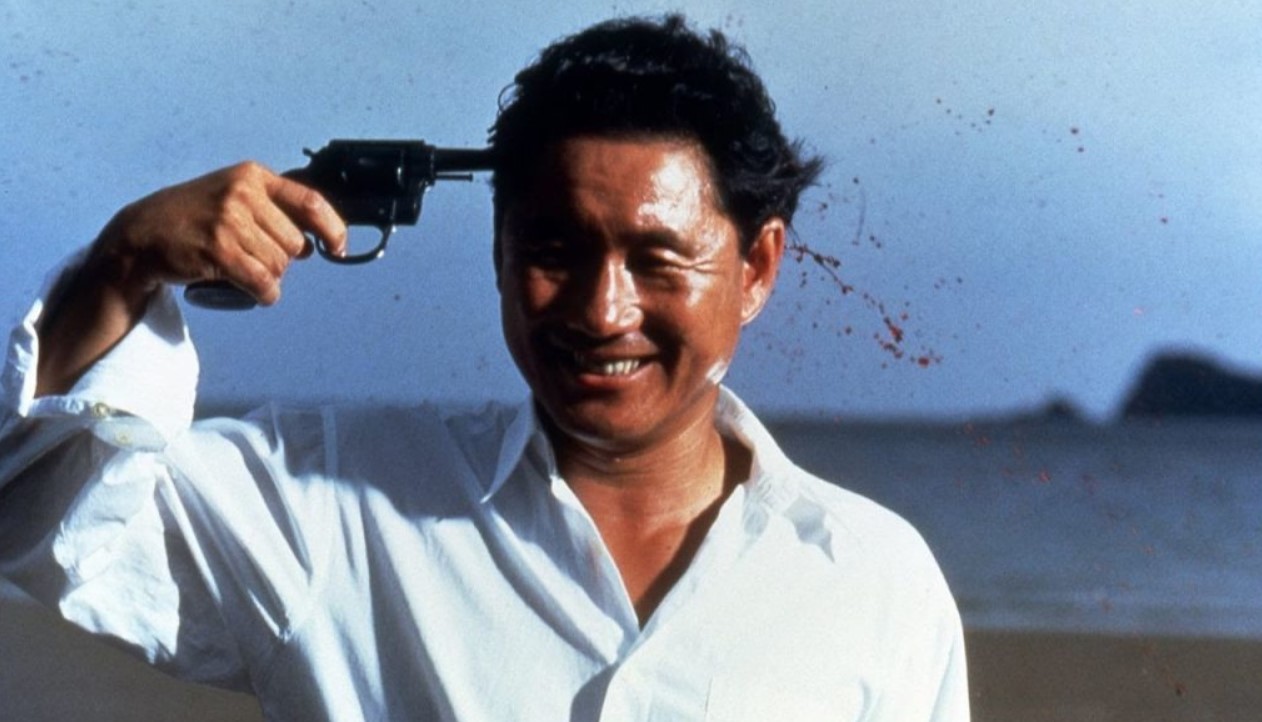
Takeshi Kitano Phone number and Contact Details:
Due to his vast following, it is impossible to directly contact him. His phone number is +81 (0)3-3461-4411. We may also offer his office fax number +81 (0)3-3461-4457.
Please note that we do not have his personal phone number. You may contact him via his assistant.
Takeshi Kitano Official Website and Email Id:
| Autograph Request Address | Takeshi Kitano Directors’ Guild of Japan Shibuya Goto Building 5F 3-2 Maruyama Shibuya-ku Tokyo-to 150-0044 Japan |
| Fanmail Address | Takeshi Kitano Directors’ Guild of Japan Shibuya Goto Building 5F 3-2 Maruyama Shibuya-ku Tokyo-to 150-0044 Japan |
| Mailing Address | Takeshi Kitano Directors’ Guild of Japan Shibuya Goto Building 5F 3-2 Maruyama Shibuya-ku Tokyo-to 150-0044 Japan |
| Phone Number | +81 (0)3-3461-4411 |
| Email Address | vladimirvasilchikov@gmail.com |
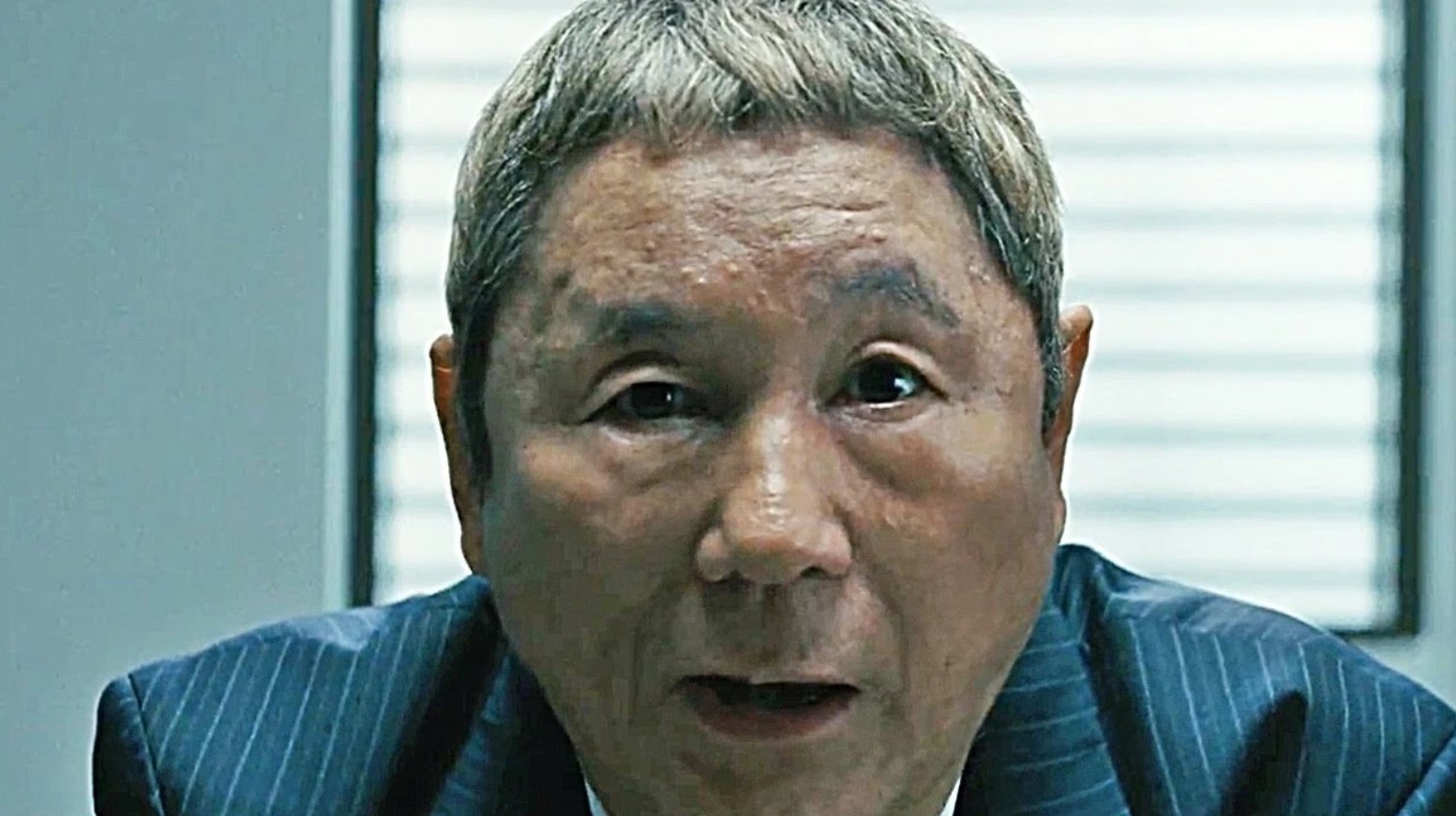
Takeshi Kitano Social Media Accounts
If you want to follow him on social media sites, you must first verify the provided social media networking information, which includes Instagram, Twitter, and Facebook. All of these are official accounts, as shown by the blue tick. Furthermore, he has a YouTube channel, however, this is not a confirmed account.
| Instagram Handle | https://www.instagram.com/kitanofanclub |
| Facebook Handle | https://www.facebook.com/takeshi.kitano.50159/ |
| Youtube Channel | NA |
| https://twitter.com/kitanofrombr | |
| TikTok Id | NA |
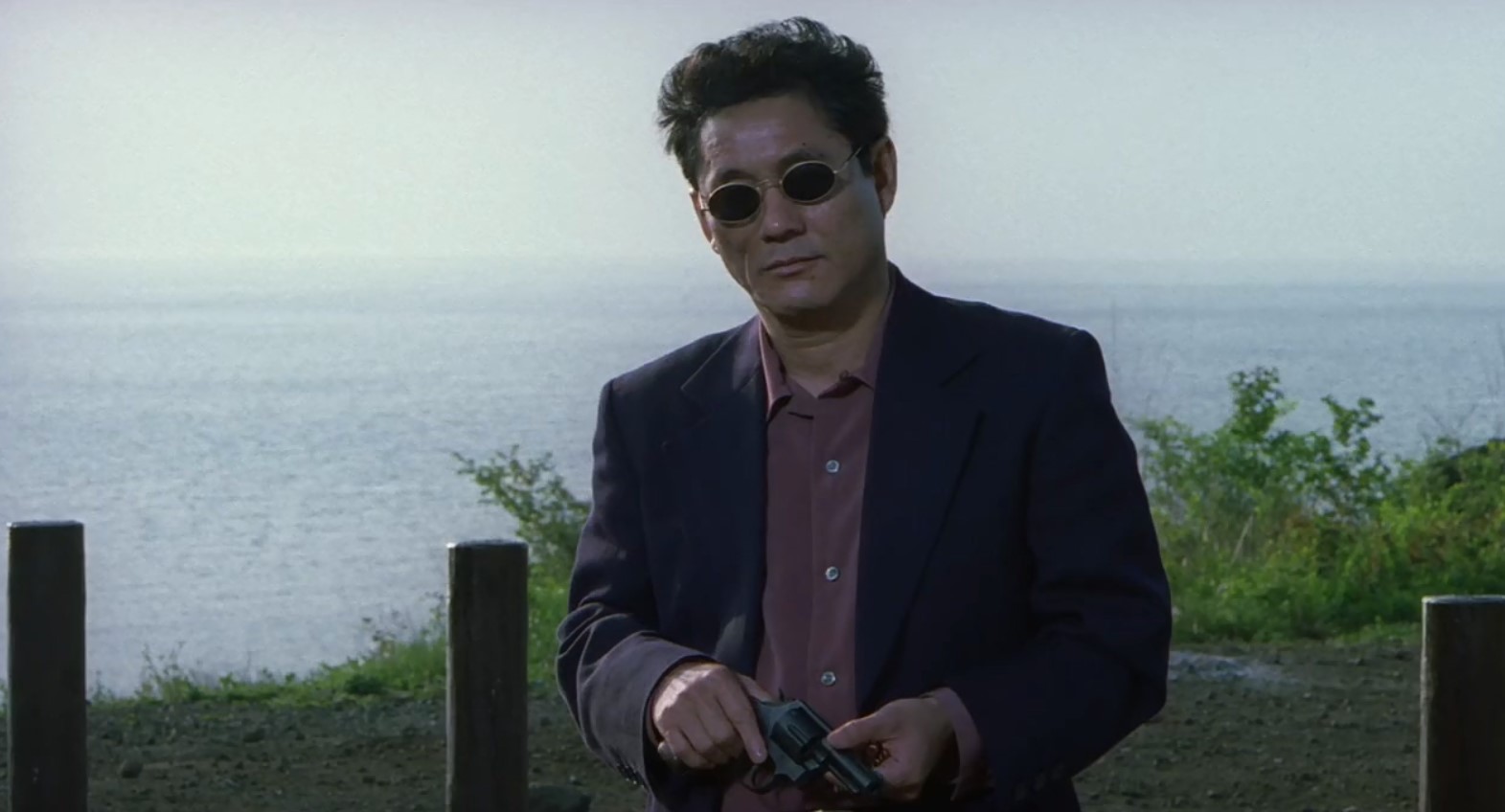
Some Important Facts About Takeshi Kitano:
- He was born on 18 January 1947.
- His age is 76.
- His birth sign is Libra.
Kitano directed his first picture with an all-English speaking cast, titled Brother, in 2000. In the same year, Kitano also had a role in the future thriller film Batoru rowaiaru (also known as Battle Royale), which caused a lot of controversy in Japan due to its storyline about young offenders being forced by authorities into fighting to the death on a distant island. After that, he appeared in a leading role in the film’s sequel, titled Batoru rowaiaru II: Chinkonka (2003; Battle Royale II: Requiem). Dolls (2002), in which Kitano portrays three distinct love tales, marked his departure from his earlier preoccupations with comedic and violent themes. In Zatichi (2003; Zatichi: The Blind Swordsman), his first-period piece, he made history by playing a renowned blind warrior. The film was released under the English title Zatichi: The Blind Swordsman.
In the film Takeshis’ (2005), which Kitano also directed, he lampooned his public image as a celebrity with a bloated ego by portraying a version of himself and his own counterpart in the film. Takeshis’ was released in 2005. After that, he directed two further movies in which he portrayed different versions of himself: Kantoku Banzai! (2007; Glory to the Filmmaker!) and Akiresu to kame. Both movies were released (2008; Achilles and the Tortoise). Kitano’s short film “One Fine Day” was included in the anthology “Chacun son cinéma” (2007; “To Each His Own Cinema”), which was a compilation of short films in which the director of each section strove to communicate his thoughts about cinema. Kitano’s film was one of the films in the collection.
In 2010, he released the very violent film Autoreiji, which was his comeback to the yakuza genre (Outrage). In 2012 and 2017, respectively, the sequels Autoreiji Biyondo (also known as Beyond Outrage) and Autoreiji Saishusho (also known as Outrage Coda) were released. Kitano made his directorial debut in 1989; he has written, directed, edited, or appeared in almost one film every year without sacrificing the upward momentum of his creativity and elevated creative sense. Kitano’s position as a pivotal player in the international film industry was solidified with the phenomenal success of the film Fireworks (1997) in 1997. “Hana-bi” was honoured with several accolades, including the Golden Lion at the Venice Film Festival and the Best Non-European Film award from the European Film Academy. The movie “Hana-bi” was included on several different “Best Films of the Year” lists, often in the number one spot.
Kitano’s first film to be filmed outside of Japan was Brother (2000), which he made in 2000. “Brother,” along with previous movies directed by Kitano, such as the director’s debut, “Sono otoko, kyôbô ni tsuki (1990)” (US title: “Violent Cop”), “Boiling Point” (1990) (US title: “Boiling Point”), and “Sonatine” (1993), focused on yakuza (gangster) characters. In films such as A Scene at the Sea (1991) (US title: “A Scene at the Sea”), Getting Any? (1994) (US title: “Getting Any?”), Kids Return (1996) (US title: “Kids Return”), and Kikujiro (1999), the director juxtaposed the seriousness and brutality that were present in those films with comedic or sentimental undertones (1999). Dolls (2002), Kitano’s ninth feature as a writer-director, was the first time in the last six years that he did not participate in any aspect of the film’s production.
Kitano has also worked in the film industry as an actor and starred in movies he has not directed. Because of his performance in Nagisa shima’s Merry Christmas, Mr Lawrence received recognition on a global scale (1983). He worked with Oshima again on the samurai epic Taboo (1999), which was released in 1999. (US title: “Taboo”). He appeared in Kinji Fukasaku’s controversial and commercially successful film Battle Royale (2000). (US title: “Battle Royale”). His acting accomplishments include films such as Robert Longo’s Johnny Mnemonic (1995) and Jean-Pierre Limosin’s Tokyo Eyes, both of which were directed by directors who were not of Japanese descent (1998).
Kitano is still considered one of the most influential people in Japan, even though his career has been highly productive and varied over the last 25 years. He appears on five television shows weekly, in addition to many television movies and specials each year. He is the author of several collections of short stories, poems, and essays, in addition to several novels. Both “Hana-bi” and “Kikujiro” include Kitano’s work, which he is known for creating as a cartoonist and painter in addition to his other talents.
See Also: Matt Dillon Phone Number, Contact Details, Autograph Request, Mailing, And Fan Mail Address
We appreciate you finishing this article! Please consider sharing this article and reading our other blogs.
DISCLAIMER: The given info comes from different sources. The site can not guarantee the numbers’ accuracy.
